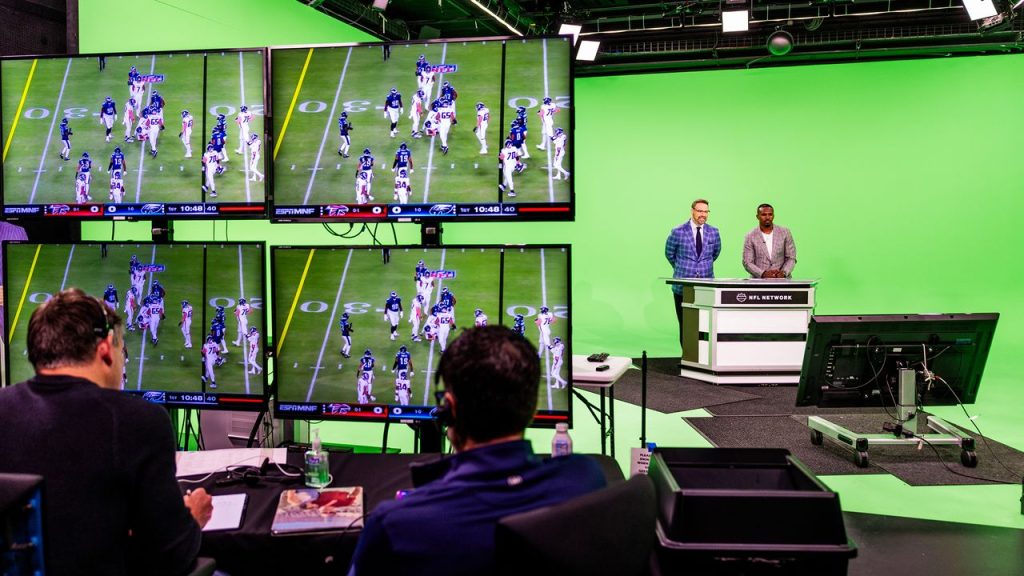Long already serves as an analyst for a pregame show on CBS Sports Network and cohosts a podcast that covers the NFL. But even with his experience, Long thought a few days at the boot camp could do him well because it was an “opportunity to be around the masters” and broaden his repertoire. While his dream job is to be an analyst on The NFL Today, CBS’s flagship Sunday pregame show, Long also attended to get reps calling games from the booth. “I knew I wanted to do studio,” he said, “but you come to this boot camp and you get to try on a couple different pairs of pants.”
The boot camp origin story begins with Vaughn Bryant, a former manager in the NFL’s player development office. Bryant worked to help players find professional opportunities outside of football, a chapter that comes sooner than later for most. The average length of an NFL career spans only about three years, and Bryant’s job was to provide resources to ease the transition to civilian life.
Bryant once made that transition himself. After being drafted by the Detroit Lions in 1994, he bounced around the league for a couple of years before hanging up his cleats. With his playing career over, Bryant landed an internship at CNN, where a producer invited him to sit behind an anchor’s desk and simulate a studio show. Years later, when he started his job in player development, he kept thinking back to that day—and then he got inspired.
“I was like, Wait a minute, we could re-create this at the NFL Network or at NFL Films, and we can bring in all of our network partners, simulate every discipline and do that for our players,” Bryant said. He went to his next meeting with the pitch in his back pocket. “I already had a name for it: the NFL Broadcast Boot Camp,” he recalled. Bryant figured he’d have a year to get the program off the ground. His bosses had other ideas. “They were like, Nah, you gotta do this as soon as possible,” he said.
In June 2007, about half a year after Bryant floated the idea, the inaugural boot camp was held at the headquarters of NFL Films in Mount Laurel, New Jersey. Early interest was minimal: Only about 30 players applied. But players talked, word spread, and by the second year the league received close to 100 applicants. “You do it once and anything that the players have a good experience with, they’re going to tell their teammates,” said Bryant.
The boot camp has evolved with the media landscape, tailoring its curriculum to a world now dominated by podcasts, social media, and smartphones. But the shift is perhaps most evident in the players themselves, with this year’s campers boasting considerably more media experience than their predecessors. Along with Long, the group also included Willson and former wide receiver Stevie Johnson, who work as analysts for the Canadian sports channel TSN. Avant, meanwhile, is a commentator for several local outlets in Philadelphia.
Player-hosted podcasts have come to saturate the medium in recent years, with shows led by NFL stars such as Jason and Travis Kelce and Micah Parsons among the biggest in the genre. That represents another shift—specifically, in what teams permit. Jason McCourty, an analyst for CBS, said that coaches and front-office personnel expected a player’s focus to be entirely on football when he entered the league in 2009. “If you were drafted and you’re talking about starting a podcast or how you’re going to be on a local TV station, teams would look at you crazy,” said McCourty, who attended the boot camp in 2022. Now, he added, “teams are seeing there’s no way to avoid it.”

